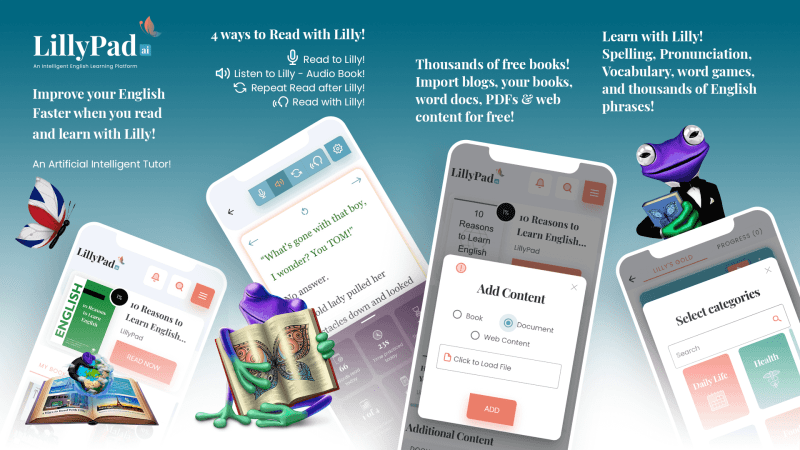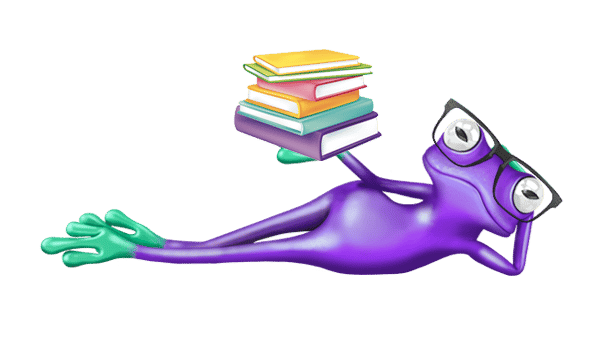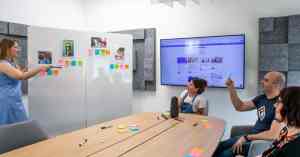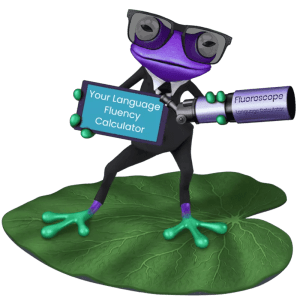What is English Language Learning?

What are the benefits of English Language Learning?
English is one of the most widely spoken languages in the world, and English language learning can have a number of benefits:
- English is the dominant language of business and commerce, and English fluency can give individuals an advantage in the job market.
- English is also the language of international communication, and English language learners will be able to communicate with a larger number of people from around the world.
- Additionally, English language learning can help individuals to better understand other cultures and gain a new perspective on the world.
English language learning can be beneficial in a number of ways, making learning this common language an important skill to learn.
English language learning allows students to access content in other subjects
English is the language of instruction in most schools, so students who are not proficient in English often struggle to keep up with their peers. This can lead to frustration and a feeling of exclusion from the learning process.
However, English language learning can help students to overcome this obstacle. By developing their English skills, ELLs can become more engaged in school and better able to access the content in all subjects. No matter your language background.
In addition, English language learning can help students to develop critical thinking and communication skills that will benefit them throughout their academic careers and beyond. It builds a better understanding of content instructions.
English language learning provides a space for students to put their bilingualism into practice
Bilingualism is the ability to speak two languages. It is a skill that is beneficial for students because it allows them to communicate with a wider range of people. English language learning provides an opportunity for students to learn about other native languages. They are able to learn about the customs and traditions of other cultures through the English language.
English language learning gives learners the opportunity to measure their progress
English language learning can be a rewarding experience for learners of all levels. Not only does it give learners the opportunity to improve their communication skills, but it also allows them to measure their progress over time.
Education advocates can track their progress in various ways, such as by keeping a journal of their daily English usage or by taking standardized tests. Tracking their progress helps learners to identify areas where they need more practice and to see the results of their hard work. As a result, English language learning can be an empowering experience for anyone who wants to improve their native language skills.
English language learning can help improve a student’s academic performance
English language learning can help students to develop better critical thinking and problem-solving skills. In addition, English language learning can also help to improve a student’s memory and concentration. By improving these skills, English language learners can find it easier to succeed in their academics.
In fact, English language learning has been found to be especially beneficial for education advocates who are struggling in mathematics. Consequently, English language learning should be encouraged for all multicultural education, not just for those who are native English speakers.
English language learning can help learners develop fluency and confidence in using the language
Fluency is the ability to speak English accurately, clearly, and confidently. It is important for English language learners to develop fluency in order to be able to communicate effectively in English. Fluency helps break the language barrier.
Confidence is also important for English language learners. When learners are confident in using the English language, they are more likely to use it correctly and participate in conversations.
English language learning can help learners develop both fluency and confidence in their English language skills.
What are the Stages of English Language Learning?
Pre-production stage
The pre-production stage is the very first stage, and it is characterized by a lack of verbal output. Students at this stage are still acquiring the basic sounds of the English language, and they are working on developing their understanding of the language. Students at this stage may be able to understand simple phrases, but they will not be able to produce much English themselves. This achievement gap can be improved over time.
Early production stage
The early production stage is typically the first stage or “elementary school” for English language learning students. At this stage, ELLs are usually able to produce very simple utterances, such as one- or two-word phrases. They may also be able to understand some basic words and phrases. However, their ability to communicate is still very limited. As ELLs move through the early production stage, they gradually begin to develop a wide variety of grammar and vocabulary. Much like how you learn in elementary school
Speech emergence stage
The speech emergence stage is the “middle school” stage of English language learning. At this stage, learners have developed a high level of proficiency and are able to produce a wide variety of fluent and accurate speech. They are also able to understand a variety of English accents and dialects. This stage is often reached after a period of immersion in an English-speaking environment. However, it is also possible for learners to reach the speech emergence stage through extensive study and practice. Either way, this middle school stage marks a major milestone in English language learning.
Intermediate fluency stage
The intermediate stage of dual language education is characterized by increased fluency and confidence in using the language. At this stage, learners are able to understand and use more complex academic content, and their vocabulary has also grown significantly. They are able to communicate effectively on a variety of topics, and they are beginning to develop an ability to interact effortlessly with native speakers.
The intermediate stage is an important milestone in dual language education, and it marks the point at which learners are able to start using this native language for real-world purposes.
Advanced fluency stage
At the advanced fluency stage of English language learning, students have mastered the basics of the English language and are able to effectively communicate in mainstream classrooms. However, they may still need to work on their pronunciation and vocabulary in order to meet to conditions of grading scales.
Additionally, they may need to study for language proficiency tests in order to write more complex sentences. Nevertheless, advanced English language learners are generally able to participate in a wide range of language activities, including academic discussions and knowledge through hands-on learning.
What are the Skills Needed for English Language Learning?
Listening
The ability to listen is essential for English language learning. One of the best ways to practice listening is to find native English speakers to talk to. This can be done through conversation partners, English clubs, or online communities. Another useful listening activity is to watch additional language movies and television shows with subtitles. This will not only help you to improve your listening skills, but it will also expose you to different accents and dialects, acquiring knowledge through hands-on learning.
Speaking
For English learning students, speaking skills are essential for communicating in everyday life. However, acquiring the ability to speak English fluently can be a challenge. There are a few things that English language learners can do to improve their speaking skills.
One is to practice with a native English speaker who will provide American writing prompts. This will help them to get used to the rhythm and flow of English conversation. Another is to listen to additional language media such as TV shows, movies, and radio programs. This will help them to pick up on common phrases and expressions. Finally, it is important to be patient and persistent in language skills development stages.
Reading
There are a number of reading skills that English language learners need to develop in order to be successful. The first is content-based instruction to identify the main idea of a text. This involves understanding the author’s purpose for writing and being able to identify the most important points.
English learning students also need to be able to understand content-based instruction, including the sequence of events and how ideas are connected. In addition, readers need to be able to draw inferences and make predictions based on what they have read. Finally, English language learners need to develop high levels of native language proficiency.
Writing
English language learning students need to develop strong motivation in writing skills to be successful in their academic and professional pursuits. While there are many challenges to writing in English, there are also a number of strategies that can help English language learners to improve their writing skills.
For instance, English language learners can benefit from learning grammar rules and understanding sentence structure. Additionally, they can improve their motivation in writing by practicing writing in different genres and by using a variety of resources, such as online dictionaries and grammar books.
What are the Methods of English Language Learning?
The Immersion Method
The immersion method involves surrounding yourself with English-speaking people and resources in order to have an interactive experience with language activities.
This could mean living in an English-speaking country, attending an English-language school, participating in community bonding, or listening to English-language podcasts.
The goal of immersion is to make English feel like your natural language, and research has shown that this approach can be highly effective for monolingual students.
The Grammar-Translation Method
The Grammar-Translation Method of English language learning in American schools. It is a traditional approach that focuses on the study of grammar rules and the translation of texts. Although it is not as widely used as some of the newer methods, it can still be an effective way to learn English. The main advantage of the Grammar-Translation Method is that it helps monolingual students to develop a strong understanding of English grammar. It relies on frequent evaluations of students.
The Audio-Lingual Method
The Audio-Lingual Method is a popular method of English teachers which involves the use of audio recordings to help learners improve their pronunciation and grammar skills. The method is based on the belief that language learning is best achieved through listening and repetition. As such, it is often used in conjunction with other methods, such as hands-on projects, flashcards, art projects, and English conversation classes.
The Cognitive Code Learning Method
The Cognitive Code Learning Method is an English language learning system that combines cognitive science and technology to help people learn English faster and more effectively. The system is based on the principle that the best way to learn a language is to first understand how the mind works when acquiring a new language. Models of instruction include American writing prompts, and content area instruction.
The Community Language Learning Method
The immigrant Community Language Learning Method is based on the idea that people learn best when they are immersed in hands-on projects. This means that instead of sitting in a classroom and memorizing grammar rules, learners are placed in immigrant community bonding situations where they are surrounded by English speakers. This allows them to pick up the language naturally, through exposure and interaction under classroom instruction.
The Direct Method
According to the Canadian Journal of Education, the Direct Method of English language learning is a teaching approach that focuses on using the target language (in this case, English) exclusively. This means that all classroom instructions and materials are presented in English, and immigrant students are encouraged to use English to communicate from the very beginning.
The Indirect Method
According to the AU.S. Department of Education, one of the most popular methods is known as the indirect method. This involves using English-language materials that are not specifically designed for language skills development. Instead, learners are exposed to English through reading, listening, art projects, and other activities that allow them to engage with the learning experience in a natural way.
What are the Materials Needed for English Language Learning?
Parental/Guardian permission
English language learning can be a great opportunity for kids to broaden their horizons and explore new cultures. However, it’s important that parents and guardians are on board with the decision before enrolling their child in an English language learning experience program. After all, English language learner placements can be a big commitment, both in terms of time and money.
Student access to a computer or mobile device
English language learners (ELLs) have been shown to benefit from having access to a computer or mobile device for language instruction. Technology can provide an immersive and engaging experience that helps ELLs develop English proficiency. In addition, technology can be used to customize English language instruction to meet the needs of each individual learner.
A quiet space to study
Students often find that they need a quiet place to study in order to focus on the task at hand. While some people may be able to study in a crowded coffee shop or library, others find that they need complete silence in order to concentrate. If you are someone who needs a quiet space to learn English, there are a few different options available to you. One option is to rent a private study room at a language school or community centre.
A reliable internet connection
A reliable internet connection is essential for English language learning. It allows immigrant students to connect with their English teachers and classmates and access online resources, inclusive schools, and participate in English language learner placements.
A willingness to learn
Those who are English language learners must be willing to put in the time and effort to master the dual language program. This means studying grammar rules, memorizing vocabulary, and practicing speaking and effective writing. It can be difficult to stay motivated, but it is important to remember that even small improvements can make a big difference. With a little time in foreign language classes, you will improve your academic language skills.
Basic knowledge of the English language
While there are many different approaches to English language learning, one of the most basic and essential skills is understanding English grammar. English grammar can seem complicated at first, but with a little practice, it can be easy to understand. English grammar is made up of simple rules that govern how words are used together to form sentences, it is essential for effective writing.
What are the Challenges of English Language Learning?
Lack of access to quality resources
English language learners (ELLs) often face significant challenges in acquiring background knowledge in the English language. In addition to the difficulty of mastering a new language, they also must contend with funding cuts and a lack of quality resources and content teachers. Many ELLs attend schools that are underfunded and lack the resources needed to provide adequate evaluations of students. As a result, these immigrant students often fall behind on their bilingual forms and struggle to catch up.
Lack of Financial Resources
English teachers can be an expensive way to improve your bilingual forms. In addition to funding cuts and the cost of tuition, there are also the costs of materials, testing, and living expenses. For many people, these costs are simply too high to justify the investment. As a result, English language academic achievement is often out of reach for those who need it the most.
Lack of access to native speakers
One of the most significant obstacles is the lack of access to native English speakers. Without regular exposure to English in a naturalistic setting, it can be difficult for ELLs to develop the skills and confidence necessary for success.
In addition, lack of access to content teachers can also lead to feelings of isolation and frustration, as ELLs may feel like they are the only ones struggling to understand. Native speakers have the background knowledge students need for languages in instruction.
Lack of motivation
Without access to adequate content language, students can feel unmotivated. Utilizing various resources, such as online forums, English-language television and movies, and books can help English language learners keep up their motivation levels while they practice their content language skills. With perseverance and dedication, English language learners can achieve their goals of academic achievement.
Lack of time
English language learning can seem like a daunting task, especially if you don’t have much time to devote to it. However, there are a few simple steps you can take to make the most of your time and progress quickly. Set aside time each day for English language learning. Even just 30 minutes can make a big difference.
Fear of failure
Many international students who want to learn English worry that they will make mistakes and look foolish. This fear of failure can lead them to avoid English altogether or to only use it minimally in order to minimize the risk of making errors. No matter your cultural background, the fear of failure is a universal feeling. It’s something that stops many people from acquiring academic language skills.
What are Solutions to the Challenges of English Language Learning?
Immersion in an English-speaking environment
Immersion in an English-speaking environment is often touted as the best way to learn English. And it’s true that being surrounded by English can speed up the learning process. However, immersion is not right for everyone. Some international students thrive in a traditional classroom setting, where they have the opportunity to receive regular feedback from an English teacher.
Use of technology to facilitate learning
Technology can play a helpful role in English language learning by providing resources and tools that can facilitate the learning process. For example, online dictionaries and grammar websites can help English learners quickly look up unfamiliar words and concepts. In addition, there are many online quizzes and practice exercises that English learners from all cultural backgrounds can use to improve their skills.
Bilingual education programs
Research has shown that bilingual programs can help students to improve their English skills more quickly, and it can also lead to higher test scores and graduation rates. Furthermore, bilingual programs help to create a more diverse and inclusive school community. There has been an increase in funding for programs like these in many English-speaking countries because additional funding helps them reach more students.
Translation and interpretation services
One way to help English language learners is to provide translation and interpretation services. This can help them to understand classroom lectures and assignments, as well as to participate more fully in extracurricular activities. Translation and interpretation services can also help English language learners to build confidence and proficiency in English language output.
What are the Resources for English Language Learning?
Online resources for English language learning
There are many online resources available to English language learners from all cultural backgrounds. These websites offer a variety of English language output materials, including grammar lessons, vocabulary lists, and interactive exercises. They also offer opportunities to practice English with other users from around the world. In addition to online resources, there are also many mobile apps that can help English language learners improve their skills.
Offline resources for English language learning
While there are many online resources available to help people’s levels of language proficiency, there are also a number of offline resources that can be just as effective. English language learning books and CDs are widely available and can be used at home or on the go. In addition, there are many academic experiences offered by community organizations, libraries, and schools.
Free resources for English language learning
There are a number of advisor-approved courses that English learners can use to improve their levels of language proficiency. For example, websites offer a wealth of articles, quizzes, and games specifically designed to help English learners improve their proficiency. And if you’re looking for something more structured, there are also many free online courses available that can help you build your English skills from the ground up.
Paid resources for English language learning
While there are many free resources available, paid resources can often provide a more comprehensive education. Paid English language learning resources may include online courses, face-to-face classes, private tutoring, or software programs.
What are the Best Tips for English Language Learning?
Quickly acquire a basic understanding of the language
There are a number of advisor-approved courses that can help English language learners quickly acquire a basic understanding of the language. Online courses and apps can provide concise lessons on key concepts, and there are also numerous websites and forums where English learners can practice their skills by interacting with native speakers.
Make sure you have comprehensible input
This means that you should be exposed to the language in a way that you can understand. If you’re constantly hearing or reading things that you can’t make sense of, you’re not going to make much progress. Instead, focus on finding academic experiences that are at or slightly below your level. This way, you’ll be able to understand what’s going on and slowly build up your skills.
Get lots of practice in using the language
A good way to learn a new language is to get lots of practice using it. There are many ways to do this, but some of the most effective methods include listening to English-language audio materials, reading English-language books and articles, taking academic courses, and speaking English with native speakers. This can help you narrow the linguistic achievement gap.
Make sure you measure your progress
It is important to measure your progress in order to ensure that you are actually making the progress you think you are. There are a number of ways to measure your English language learning progress. One way is to take a placement test at the beginning of your studies and then again at regular intervals. This will give you a sense of how your English skills are improving over time.
Learn about the culture and background of the English language
There are several different theories about how English became so widespread. But it is generally agreed that its popularity is largely due to its status as a Lingua Franca, which is a common tongue used between speakers who do not share a native language. Take time to understand the culture and customs of countries that speak this language.
Frequently Asked Questions
There is no single best method for learning English. Different methods work better for different individuals, depending on factors such as learning style, prior knowledge, and level of motivation. If your current school isn’t working for you, consider a method with less sheltered instruction and methods of assessment.
In today’s globalized world, English has become the lingua franca for many businesses and organizations. As a result, those who can speak and write English fluently have a distinct advantage in the job market. In addition to being essential for employment, English is also the language of cultural and linguistic diversity.
There are many ways to narrow the linguistic achievement gap. One way is to find a website that offers free English lessons. These websites usually have lessons that cover grammar, vocabulary, and conversation. They also often have quizzes and other activities to help you practice what you have learned. Another way to learn English for free is to find a native speaker who is willing to provide foreign language classes. This can be a friend, family member, or even someone you meet online. Native speakers can help you with your pronunciation and with understanding of idioms and colloquialisms. Finally, there are many resources available online and in libraries that can help you learn English on your own. These resources include books, DVDs, and websites.
You don’t always need public schools to learn. And foreign language class requirements might not be for you. By creating your own study materials and setting your own schedule, you can tailor your studies specific to your needs. In addition, there are a number of foreign language classes available online that can help you to improve your skills.
Georgia uses a state-wide assessment, called the Georgia Milestones Assessment System (GMAS), to measure student achievement at each level. Students who score in the bottom two levels on the GMAS are typically classified as emerging ELLs, while those who score in the top three levels are typically classified as developing, expanding, or bridging ELLs. Classification levels can change over time as students’ English proficiency improves.
There are a number of methods of assessment to test your English Language level. One option is to take an English Language proficiency test, such as the TOEFL or IELTS. These tests measure your ability to understand and use English in academic or professional contexts, and can give you a good indication of your level. It’s always helpful to know foreign language class requirements.
In order to be understood, speakers need to be able to use correct verb tenses, pronoun usage, and word order. Furthermore, native English speakers often judge non-native speakers based on their grammatical accuracy. While it may be possible to get by with Broken English, most non-native speakers will find that their fluency improves dramatically when they take the time to learn proper grammar.
You don’t need foreign language classes to succeed. There are many special education services to learn English at home. You can find a tutor or take an online class, but you can also learn on your own with the help of books, movies, and apps. The internet is changing academic policies, making it easier to get online degrees from places like the University of North Texas offering degree programs.
For people looking to learn English, there are a variety of great apps available. One option is LillyPad, an app that helps users learn vocabulary and grammar through fun exercises.
Some key benefits of this English Language Learning App includes:
• A wide range of activities to keep users engaged
• Exercises that adapt to users’ individual needs
• Detailed progress tracking to help users see their progress
•A virtual tutor who provides feedback and guidance

Learn from History – Follow the Science – Listen to the Experts
What’s the one thing that makes LillyPad so special? Lilly! She is a personal English tutor, and has people talking all over the world! Lilly makes improving your English easy. With Lilly, you can read in four different ways, and you can read just about anything you love. And learning with Lilly, well that’s what you call liberating!
For learners of all ages striving to improve their English, LillyPad combines the most scientifically studied and recommended path to achieving English fluency and proficiency with today’s most brilliant technologies!
Additionally, the platform incorporates goal-setting capabilities, essential tracking & reporting, gamification, anywhere-anytime convenience, and significant cost savings compared to traditional tutoring methodologies.
At LillyPad, everything we do is focused on delivering a personalized journey that is meaningful and life-changing for our members. LillyPad isn’t just the next chapter in English learning…
…it’s a whole new story!
Do you want to improve your English? Visit www.lillypad.ai.
Follow us on Facebook or Instagram!

Bethany MacDonald
Bethany MacDonald has contributed articles LillyPad.ai since 2020. As their Blog Lead, she specialises in informative pieces on culture, education, and language learning














